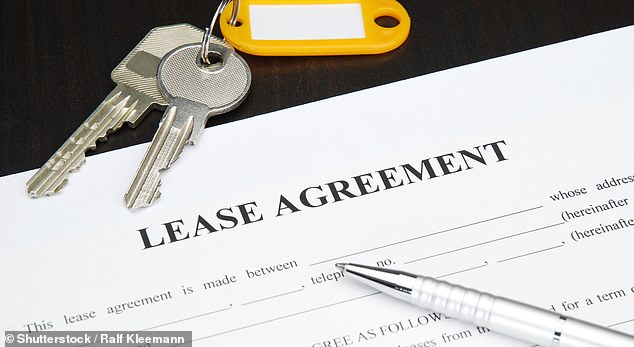
I own my flat mortgage-free, but it has less than 30 years to run on the lease. I’m planning on selling up to move closer to my family.
The estate agent has obviously advised me that the flat is worth considerably less than what it might be with a new lease.
I have read about this new leasehold reform bill which could make it cheaper and easier to extend the lease or buy a share of freehold. This sounds rather promising.
Would it be better off waiting to see if the leasehold reform bill becomes law before selling my flat, as I assume it might be worth more in a year or two?


Reform: Leaseholders in England and Wales look set to be given greater rights and powers over their homes as part of the new reforms introduced on 27 November in Parliament
I also have some savings, so depending on how expensive it is to extend the lease, there is a possibility I might be able to do that myself before putting it on the market. Would that be wise or not?
My other question is, how do I cross-check the estate agent’s valuation? When I asked them about this, they said they didn’t have any examples of other flats with a short lease like mine that have sold recently.
Ed Magnus of This is Money replies: This is a timely question and is something that will no doubt be running through the minds of many homeowners with leaseholds running down.
There are close to 5 million leasehold homes in England and Wales, of which 70 per cent are flats and 30 per cent are houses, according to Government figures.
As you rightly mention, leaseholders in England and Wales look set to be given greater rights and powers over their homes as part of the new reforms.
The bill was introduced to Parliament on 27 November. However, it will take time to become law and it could also be rejected or amended.
The bill aims to make it cheaper and easier for people to extend their lease or buy their freehold. This will include the removal of the so-called ‘marriage value,’ which makes it more expensive to extend leases when they’re close to expiry.
Other measures include increasing the standard lease extension for houses and flats to 990 years, with ground rent reduced to a peppercorn (zero financial value) upon payment of a premium.
The bill also aims to help leaseholders collectively enfranchise or manage their blocks of flats, giving them more control over the service charges.
Delaying the sale of your flat to see if the bill is enshrined into law could be a risky business.
As your 30-year lease sheds another year or two, the property value may decline further – and there is no guarantee the new leasehold reform bill will accomplish all it sets out to do.
However, if you can afford to wait, then it could potentially work in your favour.
For expert advice, we spoke to Paula Higgins, founder and chief executive of HomeOwners Alliance, Shabnam Ali-Khan, a partner at law firm Russell-Cooke and a member of the Association of Leasehold Enfranchisement Practitioners (ALEP) and Linz Darlington, managing director of lease extension specialists, Homehold.
Should they wait for the leasehold reform bill to become law?
Linz Darlington replies: Waiting for reform is not a bad idea, because the Government has promised to make it cheaper for people in your position to extend their leases.
Exactly how much cheaper it will be is up in the air, because the percentage rates used in the calculation haven’t been specified yet.
There is a concern that the shake-up in the calculation could make it more expensive for people with longer leases, but this shouldn’t be the case for you.
Equally, following the introduction of this law, it is likely to take some time before the price of short-lease flats increases to reflect the fact lease extensions are cheaper – and all the while your lease will be creeping down further.


Wait and see: Paula Higgins, founder and chief executive of HomeOwners Alliance suggests if they are happy to wait a couple of years and take the risk, it could be financially advantageous for our reader to hold on
Paula Higgins replies: The Government has introduced its Leasehold Reform Bill which will make lease extensions more affordable.
In particular it removes the concept of marriage value, which should make it substantially cheaper for those in your situation who have less than 80 years to extend their lease.
But there is no guarantee that the bill will pass, and it needs to do so before the next general election.
Even if it is passed, you need to factor in the time it will take for the legislation to be enacted as well as the time it takes to complete the lease extension process.
So if you are happy to wait a couple of years and want to take the risk, this could be financially advantageous to you.
But you ultimately need to consider your own life plans and balance those with the potential to save money.
Shabnam Ali-Khan replies: Before making any firm decisions it would be advisable to speak to a surveyor about the potential change in the leasehold extension premium if the valuation aspects of the new bill become law.


Shabnam Ali-Khan, a member of ALEP says it’s likely there will be a Human Rights challenge by landlords on the grounds this could amount to landlords not being adequately compensated
Amongst other changes, the new bill proposes to scrap marriage value. Simply explained, marriage value is the difference in the value of the flat with its current lease and the value once the lease has been extended.
Currently a leaseholder must pay 50 per cent of the marriage value to the landlord where the lease has less than 80 years when the leaseholder serves formal notice to extend.
Any removal of marriage value will of course bring the premium down in your case.
However, it is still a risk to wait as it is likely there will be a Human Rights challenge by landlords on the grounds this could amount to them not being adequately compensated.
How can they cross-check the agent’s valuation?
Paula Higgins replies: Your estate agent is right that your flat will be worth a great deal less than a similar flat on a long lease.
It’s extremely tricky to figure out the value of your property as there will be few comparables.
You could consult a lease valuation surveyor or a lease solicitor to give you a ballpark figure.
Generally, a short lease flat is worth what someone will pay for it. An informed buyer will think about how much they would pay if the flat had a long lease.
They’ll then deduct the anticipated cost of the lease extension – including the professional fees associated with the transaction.
They will also knock extra off the sale price for the hassle and risk of doing a lease extension.


Linz Darlington says waiting for reform is not a bad idea, because the government has promised to make it cheaper for people in your position to extend their leases
Linz Darlington replies: Your estate agent is right – your flat will be worth significantly less with 30 years remaining on the lease.
It can be very hard to determine how much a flat with a short lease is worth. Some research by Savills from 2015 suggested a flat with a 30-year lease would be worth about 62 per cent of the value of the same flat with a long lease.
In reality, the value will be based on a cash buyer’s appetite to buy the flat and then extend the lease themselves.
For them, what they pay for the flat can have an impact on the lease extension cost.
Shabnam Ali-Khan adds: In terms of the estate agent’s valuation, you can get a few other opinions from other local estate agents and ask a local surveyor.
There probably are not many flats with short leases that have sold.
Should they try to extend the lease before selling?
Paula Higgins replies: The gap between what a flat is worth with a long lease and a short one widens as the lease gets shorter.
This is partly because the lease extension will be more expensive, but also because mortgages become scarce, and buyers become limited to those with lots of cash.
So if you have the funds, it’s usually better to extend the lease before putting it on the market.
Shabnam Ali-Khan replies: As your home has a very short lease, it makes sense to seriously consider extending it now rather than waiting for the new bill to become law.
The reality is we do not know which provisions will come into force and when. With less than 30 years left, the value of your flat may go down.
If you don’t extend the lease by the time you come to sell, you will only be attracting cash buyers which narrows your market.
Most lenders are currently only lending on leases of around 70 years or more.
Linz Darlington adds: If you can raise the funds, it would almost certainly make most financial sense for you to extend your lease yourself, so you can sell the flat for its full market value.










